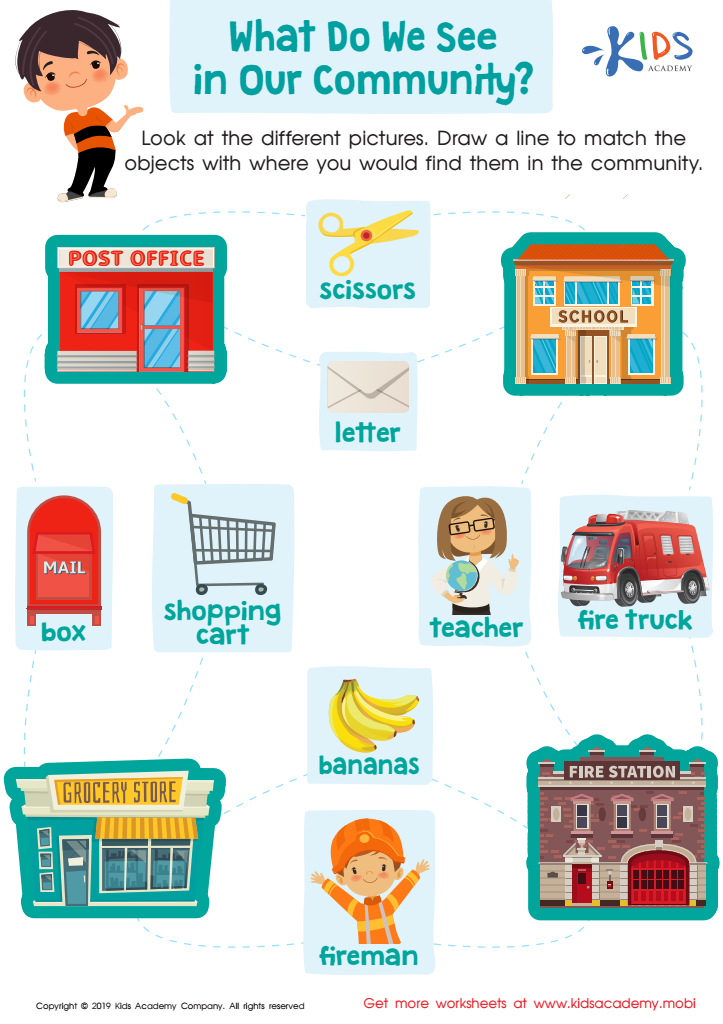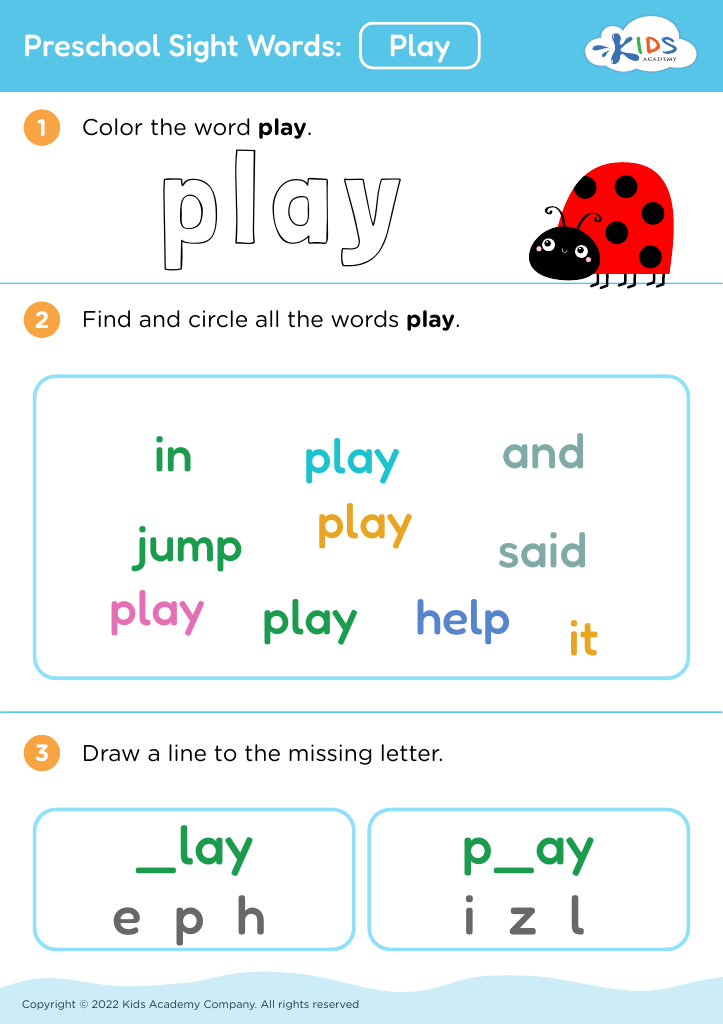Improving reading skills Building Vocabulary Worksheets for Ages 3-6
4 filtered results
-
From - To
Unlock your child's potential with our "Improving Reading Skills: Building Vocabulary Worksheets" designed specifically for ages 3-6. These engaging worksheets foster a love for language while enhancing vocabulary and reading comprehension. Tailored to young learners, our fun and interactive exercises include word matching, picture recognition, and creative activities, ensuring children develop essential reading skills in an enjoyable way. Each printable worksheet supports early literacy development, helping little ones build confidence and fluency as they explore new words and meanings. Perfect for at-home learning or classroom activities, these resources provide a strong foundation for lifelong reading success. Give your child the gift of literacy!


What Do We See in our Community? Worksheet
Improving reading skills and building vocabulary for children aged 3 to 6 is crucial for their cognitive and social development. During these formative years, children are like sponges, absorbing information and making connections with the world around them. A strong foundation in reading enhances their ability to comprehend and express ideas, which is essential for academic success.
Early literacy skills influence a child's self-confidence and love for learning. When children enjoy reading, they are more likely to engage with diverse texts, fostering curiosity and imagination. Building vocabulary at this age expands children's ability to communicate feelings, opinions, and ideas, enabling richer interactions with peers and adults.
Additionally, improved vocabulary skills correlate with better performance in school, as language plays a vital role across subjects. Early exposure to a variety of words enhances comprehension skills, helping children navigate more complex reading materials as they progress.
For parents and teachers, investing in early reading and vocabulary development creates a positive ripple effect—empowering children to become enthusiastic learners and effective communicators in their future academic endeavors and everyday life. Ultimately, nurturing these skills lays the groundwork for lifelong literacy and a deep appreciation for literature.
 Assign to My Students
Assign to My Students








.jpg)









